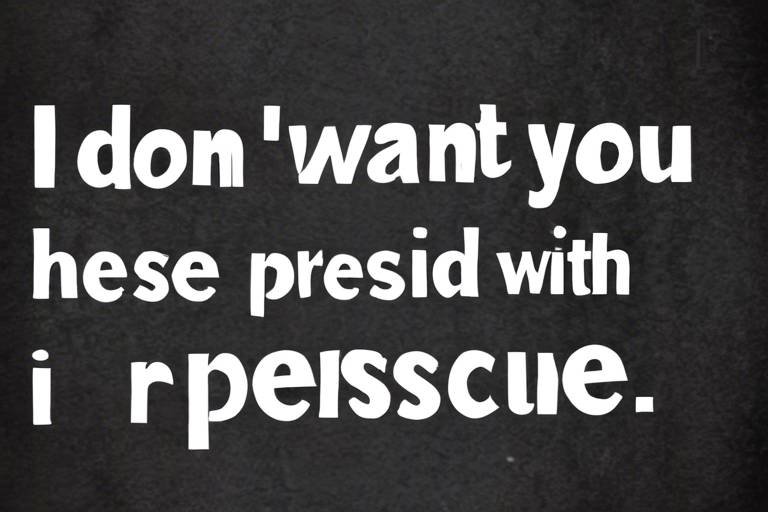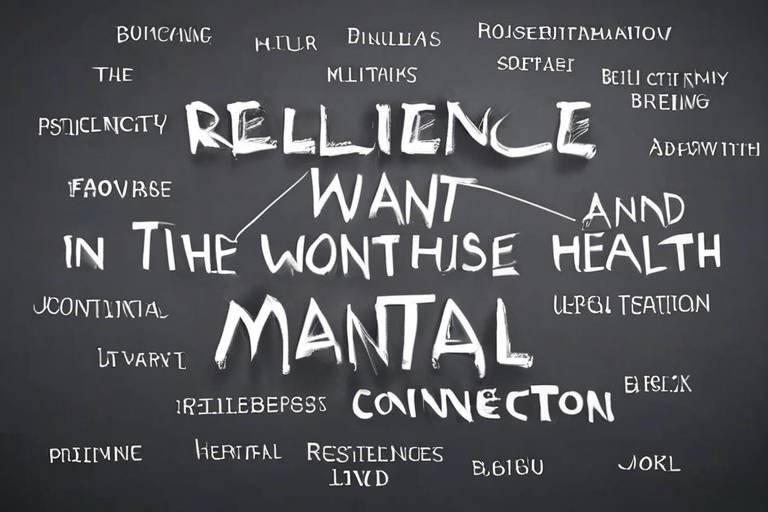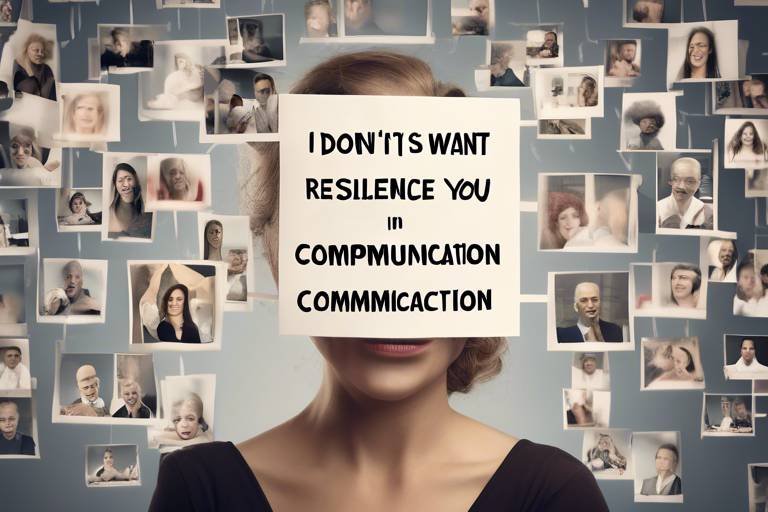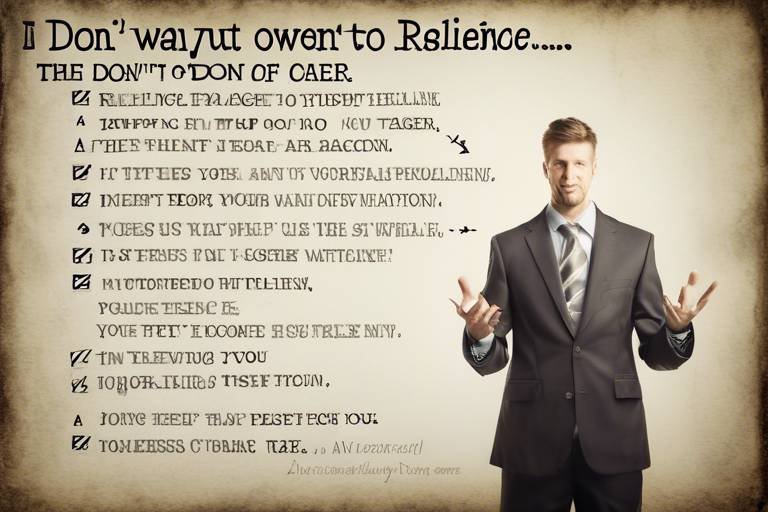How Resilience Helps in Dealing with Peer Pressure?
Peer pressure is a force that many of us encounter at various stages of life, particularly during our formative years. It can be a daunting experience, often leading individuals to make choices they might not otherwise consider. However, the good news is that resilience acts as a powerful buffer against the negative impacts of peer pressure. But what exactly is resilience? In simple terms, it’s the ability to bounce back from setbacks, adapt to change, and keep pushing forward despite challenges. When individuals possess a strong sense of resilience, they are better equipped to face the demands of their peers without compromising their values or self-esteem.
Imagine resilience as a sturdy rubber band. When stretched, it may feel uncomfortable, but it doesn’t break; instead, it returns to its original shape. This analogy perfectly illustrates how resilient individuals can withstand the pressures of their social circles without losing their identity. In the context of peer pressure, resilience enables a person to pause and reflect before succumbing to the influence of those around them. They can weigh their options, consider the consequences, and ultimately make informed decisions that align with their true selves.
Moreover, resilience fosters a strong sense of self-awareness. This self-awareness is crucial when navigating social dynamics, as it allows individuals to recognize their values and beliefs. When faced with peer pressure, those who understand themselves well are more likely to stand firm against external influences. They can confidently say "no" to activities or behaviors that don’t resonate with their personal principles, thus maintaining their integrity and self-respect.
Additionally, cultivating resilience helps individuals develop critical thinking skills. This means they can analyze situations more effectively and anticipate the potential outcomes of their choices. For instance, if a teenager is pressured to skip school or engage in risky behavior, a resilient mindset allows them to consider the long-term consequences of such actions—like how it might affect their academic future or relationships with family. This foresight can be a game-changer, empowering them to resist peer pressure with confidence.
In summary, resilience is not just a trait but a vital skill that can be nurtured. By building resilience, individuals can enhance their ability to deal with peer pressure, leading to healthier choices and stronger self-esteem. In the following sections, we will delve deeper into understanding resilience, the impact of peer pressure, and practical strategies for fostering resilience in our daily lives.
- What is resilience? Resilience is the ability to recover quickly from difficulties and adapt well to change.
- How does peer pressure affect decision-making? Peer pressure can lead individuals to make choices that they may not feel comfortable with, impacting their self-esteem and values.
- Can resilience be developed? Yes, resilience can be cultivated through various strategies, including building strong support systems and enhancing self-awareness.
- What role do support systems play in resilience? Support systems, such as friends and family, provide encouragement and guidance, helping individuals withstand peer pressure.

Understanding Resilience
Resilience is more than just a buzzword; it’s a fundamental quality that allows individuals to bounce back from life's challenges. Imagine a rubber band – it stretches under pressure but returns to its original shape when the stress is removed. That’s what resilience is all about! It involves not only the ability to recover from setbacks but also to adapt positively to difficult situations. When it comes to peer pressure, having a resilient mindset can be the difference between succumbing to the crowd and standing firm in one’s beliefs.
So, what are the key characteristics of resilience? Well, resilient individuals often exhibit traits such as emotional awareness, optimism, and a strong sense of self-efficacy. They understand their emotions and can manage them effectively, which is crucial when faced with the intense pressures of social situations. Moreover, they tend to view challenges as opportunities for growth rather than insurmountable obstacles. This mindset not only helps them navigate peer pressure but also enhances their overall well-being.
In essence, resilience acts like a shield against the negative influences of peer pressure. It empowers individuals to make informed choices, stay true to their values, and resist the urge to conform to unhealthy behaviors. By developing resilience, people can cultivate a stronger sense of identity and self-worth, which are vital for maintaining mental health and well-being.
To further illustrate the importance of resilience, consider the following table that outlines the benefits of being resilient:
| Benefit | Description |
|---|---|
| Enhanced Decision-Making | Resilient individuals are better equipped to make sound decisions in stressful situations, including resisting peer pressure. |
| Improved Emotional Regulation | They can manage their emotions effectively, reducing anxiety and stress related to social pressures. |
| Stronger Relationships | Resilience fosters healthy relationships, as individuals with this trait often seek support and maintain positive connections. |
| Greater Adaptability | Resilient people can adapt to change and are less likely to feel overwhelmed by new social situations. |
In summary, understanding resilience is crucial for anyone looking to navigate the tumultuous waters of peer pressure. It’s not just about withstanding the storm; it’s about learning to dance in the rain. By embracing resilience, individuals can enhance their ability to make choices that align with their values, ultimately leading to a more fulfilling life.

The Impact of Peer Pressure
Peer pressure is like a powerful wave that can sweep you off your feet, especially when you're at a vulnerable stage in life. It often creeps in during adolescence, a time when individuals are still figuring out their identities and trying to fit into social circles. The influence of peers can be so strong that it alters decision-making processes and affects self-esteem, leading to choices that might not align with one's values. Imagine standing at a crossroads, where one path leads to personal beliefs and the other to the expectations of friends. Which way would you go? This internal struggle is a common experience for many.
When we talk about the effects of peer pressure, it's essential to understand that not all influences are negative. However, the potential risks and challenges that come with it can be significant. For instance, some individuals may feel compelled to engage in risky behaviors, such as substance abuse or reckless driving, just to gain acceptance or avoid rejection. The pressure to conform can lead to a loss of individuality, making it difficult for someone to express their true self. The emotional toll can be just as heavy, with feelings of anxiety and inadequacy often surfacing as a result of trying to keep up with peers.
To illustrate the impact of peer pressure, consider the following common scenarios:
- Academic Pressure: Students may feel pushed to cheat or take shortcuts in their studies to keep up with their peers.
- Social Activities: The desire to fit in can lead individuals to participate in activities they are uncomfortable with, such as underage drinking or skipping school.
- Fashion and Trends: The need to wear certain brands or follow specific trends can cause financial strain and lead to a loss of personal style.
These examples highlight how peer pressure can manifest in various aspects of life, often leading individuals to compromise their values for the sake of acceptance. The consequences of such decisions can be long-lasting, affecting one's mental health and self-worth. Understanding the impact of peer pressure is the first step in developing resilience and making informed choices that align with personal values.
Ultimately, recognizing the signs of peer pressure and its potential effects is crucial. It empowers individuals to take a step back and evaluate their choices, fostering a sense of independence that is essential for personal growth. As we delve deeper into the types of peer pressure, it becomes clear that the more we understand, the better equipped we are to resist its pull.
- What is peer pressure? Peer pressure is the influence exerted by a peer group to encourage individuals to change their attitudes, values, or behaviors to conform to group norms.
- How does peer pressure affect decision-making? Peer pressure can lead to impulsive decisions that may not reflect an individual's true beliefs or desires, often resulting in regret.
- Can peer pressure have positive effects? Yes, peer pressure can motivate individuals to achieve goals, such as academic success or healthy lifestyle choices, when the influence is positive.

Types of Peer Pressure
Peer pressure is a complex phenomenon that can manifest in various ways, influencing individuals in both overt and subtle manners. Understanding the different types of peer pressure is essential for recognizing how they can impact our decisions and behaviors. Broadly, peer pressure can be categorized into two main types: direct peer pressure and indirect peer pressure.
Direct peer pressure occurs when peers explicitly encourage or coerce someone to engage in specific behaviors. This is often seen in social situations where friends might pressure one another to try substances like alcohol or drugs, skip school, or engage in risky activities. For instance, imagine a group of friends at a party, and one person suggests taking a shot. The pressure to conform can be overwhelming, especially for those who may feel the need to fit in or be accepted. Resilience plays a crucial role here, as it empowers individuals to stand firm in their values and make choices that align with their personal beliefs, rather than succumbing to the immediate influence of their peers.
On the other hand, indirect peer pressure is more subtle and often arises from societal norms and expectations. This type of pressure can seep into our behaviors without us even realizing it. For example, seeing friends post glamorous photos on social media or hearing about the latest trends can create an unspoken expectation to conform to those lifestyles. It’s like being in a room full of people wearing the latest fashion; you might feel the urge to follow suit, even if it doesn’t resonate with your personal style. Here, resilience acts as a shield, allowing individuals to critically evaluate these influences and decide what truly matters to them.
To further illustrate these concepts, let’s look at some examples of each type of peer pressure:
| Type of Peer Pressure | Examples |
|---|---|
| Direct Peer Pressure |
|
| Indirect Peer Pressure |
|
Recognizing these types of peer pressure is the first step in building resilience. By understanding how peer influence operates, individuals can develop strategies to resist and make choices that reflect their true selves. This awareness not only enhances personal decision-making but also fosters a sense of empowerment in navigating social situations.

Direct Peer Pressure
Direct peer pressure is like a loud voice in a crowded room, demanding attention and urging you to conform. It manifests when friends or acquaintances explicitly ask you to engage in certain behaviors, whether it’s trying out a new substance, participating in risky activities, or even altering your personal style to fit in. Imagine being at a party where everyone is drinking, and someone hands you a drink, insisting that you join in. The pressure in that moment can feel overwhelming, making it challenging to stand your ground.
In these situations, the influence of peers can be powerful. The desire to fit in and be accepted often leads individuals to compromise their values or make choices they wouldn’t normally consider. This kind of pressure can be particularly intense during adolescence, a time when social acceptance is crucial. It’s essential to recognize that while the urge to conform is natural, succumbing to direct peer pressure can lead to negative consequences, such as damaged self-esteem and regret.
So, how can resilience help in these moments? Resilience acts as a protective shield, allowing individuals to withstand the demands of their peers. When faced with direct peer pressure, resilient individuals are more likely to:
- Assess the situation critically and recognize the implications of their choices.
- Stand firm in their beliefs and values, even when challenged.
- Seek alternative options that align with their personal goals and ethics.
For instance, consider a scenario where a teenager is pressured to skip class. A resilient student might respond by weighing the consequences of missing school against the desire to fit in. They could choose to politely decline, suggesting an alternative activity that doesn’t compromise their values, such as going for a walk or engaging in a group study session. This ability to think on their feet and make informed decisions is a hallmark of resilience.
Moreover, it’s important to recognize that direct peer pressure doesn’t always come from friends. Sometimes, it can stem from social media or popular culture, where influencers and celebrities promote certain lifestyles or behaviors. The key is to cultivate a strong sense of self and to surround oneself with positive influences. By doing so, individuals can better navigate these situations, ensuring they make choices that reflect their true selves rather than succumbing to outside pressures.

Indirect Peer Pressure
Indirect peer pressure is a subtle yet powerful force that can significantly shape our behaviors and choices without us even realizing it. Unlike direct peer pressure, which is characterized by explicit demands or requests from peers, indirect peer pressure operates behind the scenes, often manifesting through social norms, observations, and the desire to fit in. Imagine walking into a room full of people who are all dressed in a certain style; the unspoken message is clear: to be accepted, you should conform. This kind of pressure can be incredibly challenging to navigate, especially for young people who are still developing their identities.
One of the most insidious aspects of indirect peer pressure is that it can lead individuals to make choices that do not align with their true values or beliefs. For example, a teenager might feel compelled to engage in risky behaviors, such as drinking alcohol or using drugs, simply because they see their friends doing it, even if they personally disagree with such actions. This phenomenon can create a cycle of behavior where individuals feel trapped in a web of expectations that aren't genuinely theirs. Resilience plays a crucial role in combating these influences, as it empowers individuals to recognize these pressures and make choices that reflect their authentic selves.
Additionally, societal expectations can further exacerbate indirect peer pressure. For instance, social media platforms often portray an idealized version of life that can lead individuals to compare themselves unfavorably to others. This constant comparison can foster feelings of inadequacy and drive people to conform to unrealistic standards. To illustrate this point, consider the following table that highlights the different sources of indirect peer pressure:
| Source of Indirect Peer Pressure | Example |
|---|---|
| Social Media | Influencers promoting certain lifestyles or products |
| Peer Groups | Friends engaging in specific behaviors without direct pressure |
| Societal Norms | Expectations regarding appearance or success |
Understanding the dynamics of indirect peer pressure is essential for developing resilience. When individuals can identify these subtle influences, they can begin to challenge the narratives that may not serve them well. For instance, recognizing that a desire to fit in shouldn't override personal values can be a significant turning point. It’s like having a mental compass that guides you back to your true north, even when the winds of social influence are trying to steer you off course.
In conclusion, while indirect peer pressure may not be as overt as its direct counterpart, its impact can be just as profound. By fostering resilience, individuals can build the strength to resist these subtle influences, allowing them to make choices that genuinely reflect who they are. Remember, it’s not about rejecting all social influences; it’s about having the confidence to choose what aligns with your values, even when the world around you seems to suggest otherwise.

Building Resilience
Building resilience is like crafting a sturdy bridge over turbulent waters; it requires time, effort, and the right materials. Resilience is not an innate trait but a skill that can be developed through various strategies and practices. It’s about equipping oneself with the mental toolkit to face challenges head-on, especially in the face of peer pressure. So, how do we go about this transformative process? Here are some key strategies to consider:
First and foremost, self-awareness plays a pivotal role in building resilience. Understanding your emotions, strengths, and weaknesses can help you navigate through challenging situations more effectively. Take a moment to reflect on your feelings when faced with peer pressure. Are you swayed by the desire to fit in, or do you stand firm in your beliefs? This self-reflection can be a powerful tool in reinforcing your personal values.
Another essential aspect is setting realistic goals. Just like a marathon runner trains with a specific target in mind, setting achievable goals can help you maintain focus and motivation. When you have clear objectives, it becomes easier to resist external pressures. For instance, if your goal is to excel academically, you might find it easier to say no to distractions that could derail your studies.
Moreover, cultivating a positive mindset is crucial. This doesn’t mean ignoring the negatives; rather, it’s about finding the silver lining in difficult situations. When you encounter peer pressure, try to reframe your thoughts. Instead of thinking, “I’ll be left out if I don’t conform,” consider, “I’ll be proud of myself for staying true to my values.” This shift in perspective can significantly boost your resilience.
Building resilience also involves developing strong problem-solving skills. When faced with peer pressure, having a toolbox of strategies to navigate the situation can empower you. For example, if your friends are pressuring you to engage in risky behavior, think of alternative activities that align with your values. This proactive approach not only helps you resist pressure but also enhances your confidence in handling similar situations in the future.
Lastly, fostering supportive relationships is vital. Surrounding yourself with friends and family who respect your choices can provide a safety net when you face peer pressure. These relationships can serve as a reminder that you are not alone in your struggles. Consider discussing your experiences with trusted individuals; their insights can offer new perspectives and reinforce your resilience.
In summary, building resilience is an ongoing journey that involves self-awareness, goal-setting, positive thinking, problem-solving, and nurturing supportive relationships. By incorporating these strategies into your daily life, you can create a robust framework that will not only help you deal with peer pressure but also empower you to thrive in various aspects of life.
- What is resilience? Resilience is the ability to recover from setbacks and adapt well to change. It’s a skill that can be developed over time.
- How can peer pressure affect my decisions? Peer pressure can lead to choices that may not align with your values, often pushing individuals to conform to group norms.
- Can resilience be learned? Absolutely! Resilience can be cultivated through various strategies such as self-awareness, goal setting, and building supportive relationships.
- What role do friends play in building resilience? Friends who respect your choices and support your goals can reinforce your ability to withstand peer pressure.

The Role of Support Systems
When it comes to navigating the often turbulent waters of peer pressure, having a solid support system can be a game changer. Think of it like having a sturdy life raft when you're out at sea; it keeps you afloat and provides a sense of security. Support systems, which include friends, family, mentors, and even community groups, play a vital role in helping individuals build resilience and make informed decisions in the face of external pressures.
Positive relationships can significantly enhance an individual's ability to withstand peer pressure. When you have people around you who genuinely care about your well-being, it becomes easier to say "no" to harmful influences. These relationships create a safety net, allowing you to express your thoughts and feelings without fear of judgment. Imagine being in a room full of people who encourage you to be yourself and make choices that align with your values; that environment fosters strength and confidence.
Moreover, support systems provide a platform for sharing experiences and gaining insights. For instance, when you discuss your challenges with trusted friends or family members, you often find that you are not alone in facing peer pressure. This shared understanding can be incredibly empowering. It’s like attending a workshop where everyone shares their stories; you leave feeling inspired and more equipped to handle your own situations.
Additionally, support systems can offer practical advice and strategies for dealing with peer pressure. They can help you brainstorm ways to respond to direct requests or subtle nudges to conform. For example, if a friend pressures you to skip school, having a supportive friend might help you articulate your reasons for wanting to stay in class. This kind of dialogue not only strengthens your resolve but also reinforces your decision-making skills.
To illustrate how support systems can effectively combat peer pressure, consider the following table:
| Support System | Role in Building Resilience |
|---|---|
| Friends | Encourage positive choices and provide emotional support. |
| Family | Instill core values and offer unconditional love. |
| Mentors | Share experiences and provide guidance based on their own journeys. |
| Community Groups | Create a sense of belonging and provide resources for coping strategies. |
In conclusion, the role of support systems in building resilience cannot be overstated. They act as a buffer against the pressures of conformity, enabling individuals to stand firm in their beliefs and values. By surrounding yourself with positive influences, you not only strengthen your ability to resist peer pressure but also cultivate an environment where personal growth thrives. So, take a moment to evaluate your support system—who's in your corner? Their presence could be the key to navigating life's challenges with confidence.
- What is a support system? A support system consists of individuals or groups that provide emotional, practical, and social support to help you cope with challenges.
- How can I build a stronger support system? Engage with positive people in your life, communicate openly about your feelings, and seek out mentors or community groups that align with your values.
- Why is resilience important in dealing with peer pressure? Resilience allows you to bounce back from challenges and make informed decisions that align with your personal values, rather than succumbing to external pressures.
- Can peer pressure be positive? Yes, peer pressure can lead to positive outcomes when friends encourage healthy behaviors and support one another in making good choices.

Seeking Guidance from Mentors
When navigating the tumultuous waters of peer pressure, having a mentor can be like having a lighthouse guiding you safely to shore. Mentors are individuals who have been there and done that, and their insights can provide invaluable support during challenging times. They can help you see the bigger picture, offering perspectives that you might not consider when caught up in the heat of the moment. But what exactly makes mentorship so powerful?
First off, mentors often share their own experiences with peer pressure, allowing you to learn from their successes and mistakes. This shared wisdom can be a game-changer. Imagine hearing a story about how a mentor stood up against peer pressure and made a choice that aligned with their values. It’s not just inspiring; it’s practical. You can take those lessons and apply them to your own life, making decisions that reflect your personal beliefs rather than succumbing to external influences.
Moreover, mentors can help you develop critical thinking skills. They encourage you to ask questions like, "What do I really want?" or "How will this decision affect my future?" This introspection is crucial when faced with peer pressure. Instead of reacting impulsively, you learn to pause and reflect, which can lead to more informed and confident choices.
Another significant aspect of mentorship is the emotional support it provides. Knowing that someone believes in you can boost your self-esteem and reinforce your ability to withstand peer pressure. When you have a mentor cheering you on, it’s easier to say no to things that don't resonate with your values. This support can come in various forms:
- Emotional encouragement: Mentors can help you process your feelings about peer pressure, making it easier to cope.
- Practical advice: They can provide strategies to handle specific situations, such as how to decline an invitation to engage in risky behaviors.
- Networking opportunities: Mentors often connect you with other positive influences, expanding your support network.
In addition to these benefits, mentors can also serve as role models. Their behavior demonstrates how to navigate social situations with integrity and confidence. Observing how they handle peer pressure can inspire you to adopt similar strategies, reinforcing your resilience.
Ultimately, seeking guidance from mentors is about building a toolkit for resilience. With their support, you not only learn how to resist peer pressure but also cultivate a sense of self-worth and confidence that will serve you throughout life. So, if you find yourself feeling overwhelmed, remember that reaching out to a mentor could be the first step toward reclaiming your power and making choices that truly reflect who you are.
- What is the role of a mentor? A mentor provides guidance, support, and advice based on their own experiences, helping you navigate challenges like peer pressure.
- How do I find a mentor? Look for someone in your field of interest, whether it's a teacher, coach, or family friend, and approach them about the possibility of mentorship.
- Can mentorship really help with peer pressure? Yes! Mentors offer valuable insights and support that can strengthen your resolve against peer pressure.

Encouraging Open Communication
Open communication is like the secret sauce to building resilience, especially when it comes to tackling peer pressure. Imagine trying to navigate a stormy sea without a compass; that's what facing peer pressure can feel like without a supportive dialogue. When individuals feel free to express their thoughts and feelings, they create a safe space where they can explore their emotions and experiences without judgment. This openness not only fosters trust but also encourages personal growth and self-awareness.
One of the essential aspects of open communication is the ability to discuss feelings related to peer pressure. Whether it’s the anxiety of fitting in or the fear of rejection, sharing these emotions with trusted friends or family can lighten the load. It's crucial to create an environment where individuals feel comfortable voicing their concerns. This could be as simple as setting aside time for regular check-ins with loved ones, where everyone can share their experiences and feelings without the fear of being dismissed.
Moreover, open communication allows individuals to articulate their values and boundaries clearly. When someone knows what they stand for, it becomes easier to resist peer pressure. For instance, if a teenager values their health, discussing this with friends can lead to collective decisions that align with that value, such as choosing to avoid unhealthy habits together. This kind of dialogue not only reinforces personal beliefs but also strengthens friendships based on mutual respect.
Here are some tips to encourage open communication:
- Be an Active Listener: Show genuine interest in what others are saying. Sometimes, just listening can make a world of difference.
- Create a Judgment-Free Zone: Ensure that conversations are free from criticism. This encourages honesty and openness.
- Ask Open-Ended Questions: Instead of yes or no questions, ask questions that require more thought, like “How did that make you feel?”
In addition to fostering individual resilience, open communication also builds a network of support. When friends and family engage in honest discussions, they can share valuable insights and experiences that may help someone else navigate their own challenges. This collective wisdom can be a powerful tool in resisting peer pressure, as it reinforces the idea that they are not alone in their struggles.
Ultimately, encouraging open communication is about cultivating relationships where individuals feel empowered to be themselves. It’s about creating a culture where vulnerability is celebrated, and where discussing peer pressure becomes a normal part of life. When people can talk openly about their experiences, they not only strengthen their own resilience but also contribute to a supportive community that helps everyone thrive.
| Question | Answer |
|---|---|
| What is the best way to start a conversation about peer pressure? | Start by sharing your own experiences and feelings about peer pressure to create a comfortable atmosphere. |
| How can I encourage my friends to be more open about their feelings? | Lead by example; share your feelings first and show that it’s okay to be vulnerable. |
| What if someone doesn’t want to talk about peer pressure? | Respect their boundaries but let them know you're available to talk whenever they feel ready. |
Frequently Asked Questions
- What is resilience, and why is it important?
Resilience is the ability to recover from difficulties or adapt to challenging situations. It's crucial because it empowers individuals to handle peer pressure effectively, helping them make informed choices and maintain their self-esteem even in tough social environments.
- How does peer pressure affect decision-making?
Peer pressure can significantly sway an individual's choices, often leading them to conform to group norms, even when those choices conflict with their personal values. This can result in poor decision-making and a decline in self-esteem, particularly among adolescents.
- What are the different types of peer pressure?
Peer pressure can be categorized into two main types: direct and indirect. Direct peer pressure occurs when peers explicitly encourage someone to engage in a behavior, while indirect peer pressure happens through social norms and observations, subtly influencing individuals without overt demands.
- Can you give examples of direct peer pressure?
Sure! Direct peer pressure might involve friends urging someone to try smoking or drinking during social gatherings. In these scenarios, the pressure is explicit, and individuals may feel compelled to conform to avoid feeling excluded.
- What strategies can help build resilience?
Building resilience can be achieved through various strategies, such as developing strong problem-solving skills, maintaining a positive outlook, and fostering supportive relationships. Engaging in self-reflection and seeking guidance from mentors can also boost one's resilience when facing peer pressure.
- How do support systems contribute to resilience?
Support systems, such as family and friends, play a vital role in enhancing resilience. They provide emotional backing, encouragement, and a sense of belonging, which can help individuals feel more confident in resisting peer pressure.
- Why is open communication important in dealing with peer pressure?
Open communication allows individuals to express their feelings and experiences regarding peer pressure. This dialogue fosters a supportive environment, enabling them to seek advice, share concerns, and ultimately strengthen their resilience against external influences.
- How can mentors help in building resilience?
Mentors can offer valuable insights and experiences that help individuals navigate peer pressure. By sharing their own stories and providing guidance, mentors can encourage resilience and empower mentees to make positive choices in challenging situations.



















